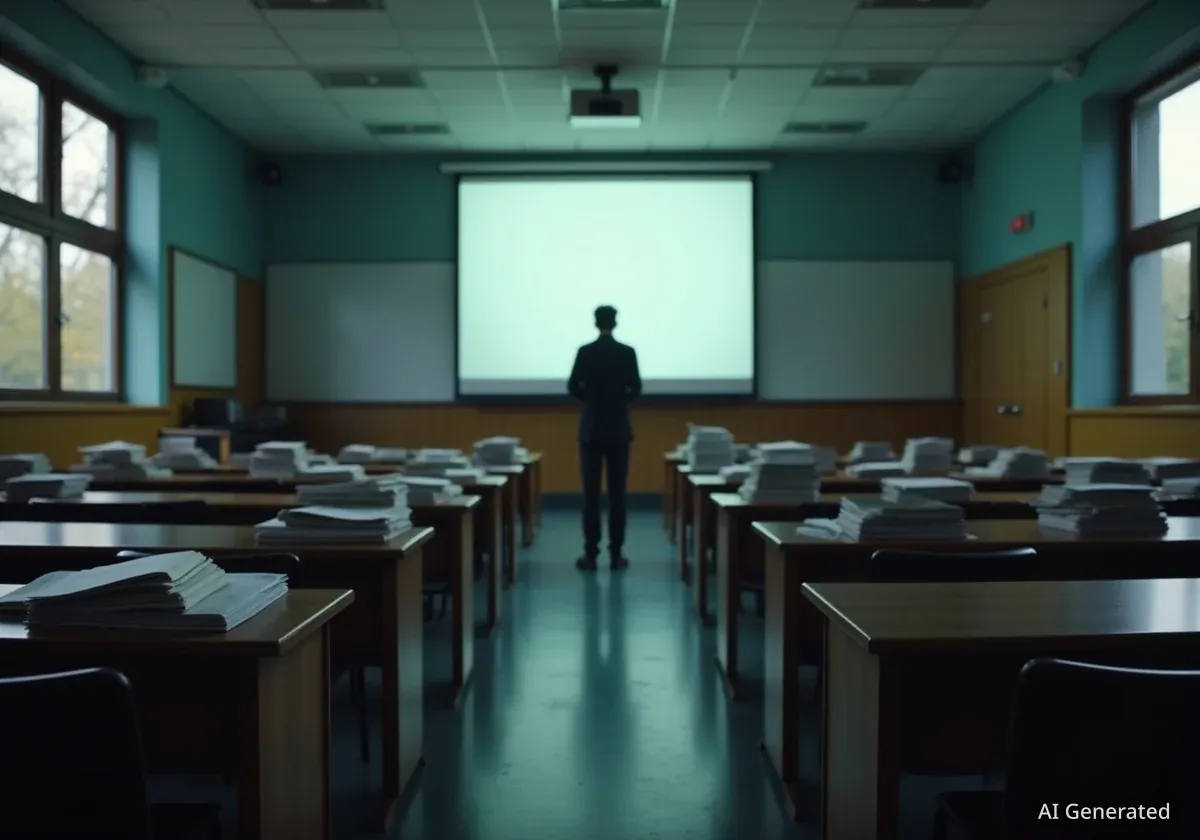A university has confirmed it will eliminate its physics department and two chemistry specializations following a review process that began in the spring of 2025. In a separate but related move, the administration has initiated a second phase of reviews targeting more than 30 other degree programs for significant restructuring.
The changes, announced in a Sept. 26 email from Provost Denise Cobb, are part of a broader program prioritization effort. While the physics program is set for closure, many other departments across the College of Arts and Sciences have been asked to develop plans for “curricular transformation.”
Key Takeaways
- The Physics Department major and minor will be officially closed after a teach-out period for current students.
- Two chemistry specializations, bioprocess chemistry and medical science, will also be eliminated.
- More than 30 degree programs across 10 subjects are now under review for restructuring, not elimination.
- Affected departments have until February 2026 to submit plans addressing administrative concerns.
- The Art History specialization has been retained after undergoing significant reforms.
Physics Program Closure Finalized
The university administration has made the final decision to close its physics major and minor. According to the provost's announcement, the program will enter a “teach-out” period to allow current students to complete their degrees. No new students will be permitted to declare a physics major or minor after the Spring 2026 census date.
Following the teach-out, the remaining physics faculty and instructional responsibilities will be integrated into the School of Engineering. This marks a change from an earlier proposal that suggested moving the faculty into the Department of Chemistry.
Background on the Decision
The initial proposal to merge physics with chemistry was met with resistance. During a March 18 open forum, the Department of Chemistry expressed concerns that absorbing the physics faculty would place an undue burden on its existing staff and resources. The new plan places the department within the School of Engineering instead.
Provost Cobb's email stated that after the transition period, “individualized assessments will be conducted to determine appropriate faculty assignments that will support the university’s continued delivery of essential physics instruction.”
Despite the department's closure, the administration indicated a potential future for related studies. “In the meantime, we will explore the viability of programming in quantum science,” Cobb wrote, suggesting a possible new direction for the university's science offerings.
Adjustments in Chemistry and Arts Programs
Alongside the physics closure, two specializations within the Department of Chemistry are also being phased out: bioprocess chemistry and medical science. The decision to cut the medical science specialization was reportedly met with no opposition from the department, according to Chair Eric Voss at an April 25 open forum.
However, the department contested the elimination of the bioprocess chemistry specialization. The administration cited a lack of student interest as a primary reason for the cuts. During the forum, Voss countered this claim, stating that the administration had not permitted faculty to teach the final required courses for the specialization for the past two years, which may have impacted enrollment numbers.
Program Retention and Ongoing Discussions
Not all programs reviewed in the initial phase were cut. The art history specialization was retained after undergoing “substantial reform that reduced total credit hour requirements while ensuring both academic rigor and efficiency,” according to Cobb. Discussions are still underway regarding the future of specializations in music theory and composition, German, and French.
Phase Two Targets Over 30 Programs for Transformation
The administration has now launched a second phase of its academic review, focusing on “curricular transformation” rather than outright elimination. This new review affects a significant number of programs, primarily within the College of Arts and Sciences.
Departments have received memoranda outlining specific concerns and questions about their programs, curricula, scheduling, and departmental structures. They are being asked to review data and create comprehensive plans to address these issues.
The programs targeted for this phase two review include degrees in the following subjects:
- Anthropology
- Environmental Sciences
- History
- Philosophy
- Political Science
- Public Administration and Policy Analysis
- Music
- Sociology
- Mathematical Studies
- Social Work
“These memos invite faculty to carefully review data and to develop comprehensive plans to address the concerns or challenges,” Provost Cobb explained in her email.
The Mandate for Change
The directives sent to these departments ask them to consider several key factors. According to the provost, faculty must analyze data related to curriculum changes, the cost of their degree programs, and actions taken by peer institutions. They are also expected to consider the needs of employers in the St. Louis metropolitan area.
Some departments have been encouraged to explore creating new credentials or degree programs that align better with student and employer demands. Others have been asked to consider merging with other departments to improve efficiency, lower administrative costs, and foster interdisciplinary work.
The affected departments have a deadline of February 2026 to submit their response plans. A committee will then review these plans and provide recommendations by April 15, 2026. The committee will include the chair of the University Planning and Budget Council, the president of the Faculty Senate, the chair of the Graduate Council, and the president of Student Government.
Provost Cobb noted that some phase two revisions are already in progress in other schools, including programs in management marketing research, higher education student affairs, instructional technology, and industrial engineering.
“The continued engagement of faculty, leadership and stakeholders will be essential to ensuring that our academic offerings remain excellent, sustainable and responsive to the needs of our students and the broader community,” Cobb concluded.
When the student newspaper, The Alestle, requested copies of the new proposals, the provost declined, stating that faculty needed time to review the documents internally first. “This phase differs from phase one, and the proposals do not prescribe a path forward,” Cobb wrote to the paper, emphasizing that departments are being asked to develop their own solutions.





